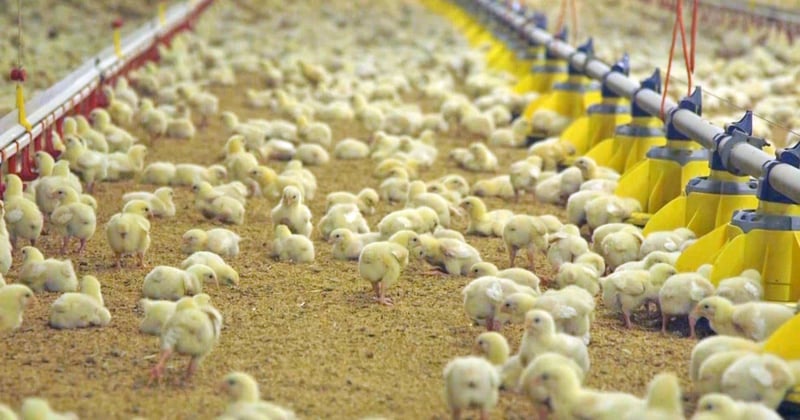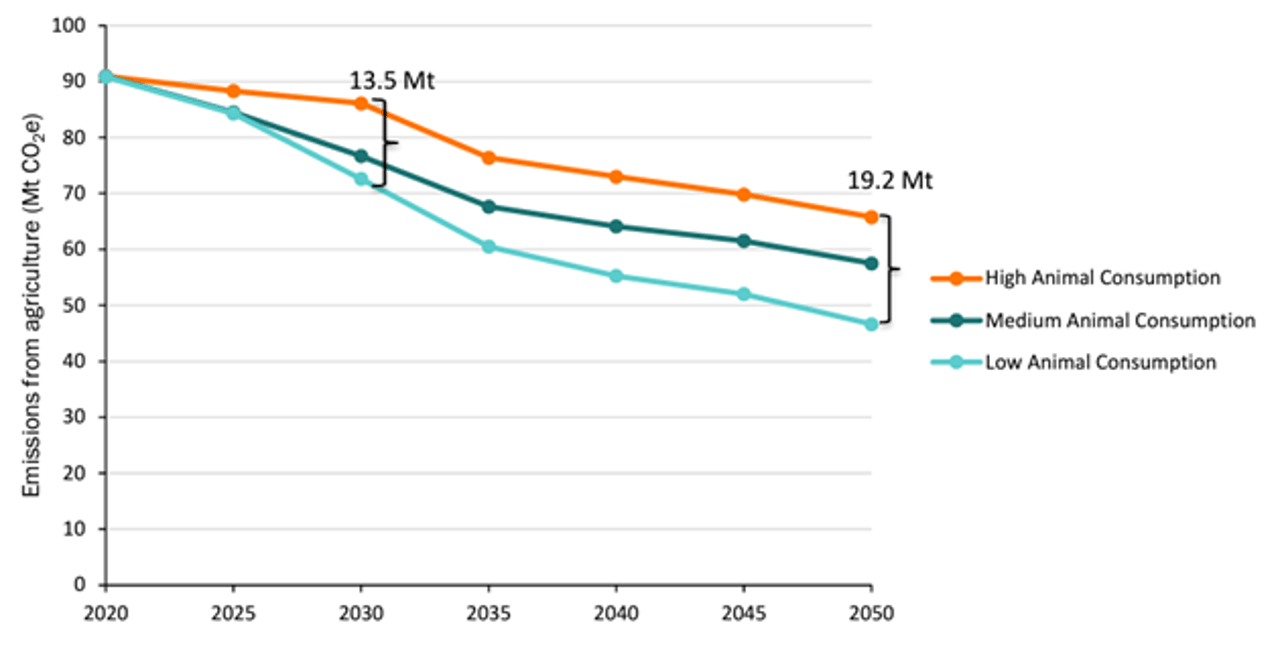
To reduce emissions from agriculture, we must reduce animal production and consumption. That’s why World Animal Protection stressed the importance of addressing this climate change culprit at COP27.
By Lynn Kavanagh, Farming Campaign Manager
Last November, the United Nations climate change conference – COP27 – was held in Egypt. The event brings together countries and other stakeholders across the globe to knowledge share, advocate, and, most importantly, make commitments to tackle the global threat of climate change.
The global food system produces approximately one-third of global greenhouse gas emissions, most of which are attributable to animal agriculture.
It’s vital for governments to address this silent global warming culprit. A failure to do so will mean the Paris Climate Agreement emission targets to limit the planet to a 1.5 degrees Celsius temperature rise, will not be met.
In Canada, the Emissions Reduction Plan (ERP) fails to acknowledge or adequately address animal agriculture as a key source of GHG emissions. While agricultural solutions are included in the ERP, they are mostly focused on increasing efficiencies (e.g., clean technology), though there are some sustainable farming practices promoted.
To date, few countries have made any meaningful commitments to address animal agriculture, a major source of greenhouse gas (GHG) emissions. The conference presented an important opportunity to raise our voice on the critical need to include animal agriculture in the plan to tackle climate change. World Animal Protection attended COP27 and hosted two side events to engage delegates on the connection between animal agriculture and climate change.
We had the opportunity to meet with Canadian delegates to share our recent research which demonstrated the emissions reduction potential if Canadians were to reduce their meat and dairy consumption by 50%. Doing so would mean Canada could meet its 2030 emissions reduction targets which currently fall short even with current polices and actions in place.
Figure: Agricultural emissions in three different scenarios in which Canada achieves its climate targets. By shifting the demand from animal to plant-based foods, we can decrease the emissions impact of the agriculture sector. For example, agriculture emissions are 16% lower in 2030 and 29% lower in 2050 in the low animal consumption scenario relative to the high animal consumption scenario. This corresponds to a reduction in emissions of 13.5 Mt in 2030 and 19.2 Mt in 2050.
In addition to asking that the Canadian government take more aggressive steps to promote the benefits of plant-based eating to Canadians, our global organizations is calling on governments to:
- Ensure no new factory farms to be built for the next ten years whilst regulations catch up to ensure that factory farming big business is held accountable for the damage it does to animals, people and our planet.
- Guarantees an end to further habitat destruction for animal feed production
- Impose compulsory higher animal welfare in existing intensive farming systems to protect animal welfare.
- Redirect subsidies and policy support away from intensive farming systems to humane and sustainable, and plant-based food. Public procurement policies should reflect this shift.
- Countries with high per capita meat consumption commit to halve global animal protein production and consumption by 2040.
Ultimately, we want governments to understand that to reduce emissions from agriculture we must reduce animal production and consumption.
Continuing our efforts at COP28
The upcoming COP28 meeting will be our third year engaging the United Nations Framework Convention on Climate Change (UNFCCC) process. We will use this opportunity to step up our efforts to call for clear food systems policies and targets that support healthy, sustainable (mostly plant-based) diets, and meat consumption reduction.
At COP 27, we saw an emerging focus on food systems including emissions from agriculture, and how this could intersect with World Animal Protection’s focus on ending industrial factory framing and destruction of animal habitats through deforestation for animal feed. For the first time, a dedicated “Agriculture Day” was held and at least four pavilions brought to light the interconnection between the food and climate crisis. In another first, the COP27 cover text highlighted the need to build climate-resilient food systems and the link between food and water security. However, action remains inadequate. Most governments, including Canada's have failed to acknowledge the true impact of industrial factory farms in driving climate change.
This year, our work will have three key focuses:
- To raise the visibility of animal agriculture as a climate culprit.
- To build support among the environmental non-governmental organization (ENGO) community.
- To influence governments and policymakers to publicly acknowledge the link between animal agriculture and climate emissions and to secure commitments from governments to address this.
Stay tuned for more updates on COP28!
